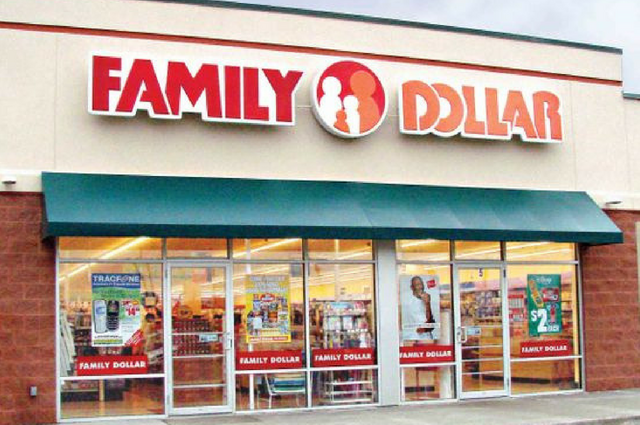From a common slip and fall case to many serious lawsuits including the allegations concerning the wrongful termination of leases, the property owners are often vulnerable to various kinds of legal issues with their retail real estate.
Preventing all such allegations and being prepared for facing such legal issues on a nearly daily basis can often be a full-time job for many real estate investors.
That is a very reason why many savvy commercial real estate investors hire a real estate agent to deal with such issues on a regular basis.
This blog is an overview of such common liability issues concerning the commercial retail real estate industry and how you, as an owner of the property or as an investor, can safeguard yourself from such legal troubles and mitigate your liabilities and risks that come along.
What are the potential legal claims against property owners, agents, and real estate investors?
Before we discuss how you, as an owner or an investor, can safeguard yourself from the potential legal troubles, let us look into the most common types of legal claims filed against the property owners, agents or real estate investors.
Most of the legal claims registered against property owners, agents or real estate investors can be broadly divided into two categories. The first category is the tort actions which include damages done to the person or the property.
In such cases the person who’s injured often files a premises liability claim. For example, when a person encounters any allegedly dangerous condition of the property which might lead to serious injuries to people living there the person can file a case against the property owner or the agents or the particular real estate investor.
Also read about commercial real estate terms every investor should know.
The second category is the contractual claims which include issues like lease agreements, terms and conditions of the lease, insurance claims and so on.
Thus, in a nutshell, it can be said that there are two broad categories of potential legal claims which are premises liability claim concerning the injuries caused to people by the poor conditions of the building and the contractual claims concerning the paperwork issues relating to title and ownership issues, insurance claim issues and so on.
Let us now look into the most common types of issues falling under the category of premises liability claim as well as the contractual liability claims to get a clear picture of the practical issues that must be taken care of.
Number 1 – Premises liability claims
- Slip and fall accidents – Although most of the property owners or real estate investors often outsource the task of safeguarding the property to the tenants, property owners or real estate investors can often be on the receiving end of a lawsuit since it is deemed by law that you, as the owner or an investor has the responsibility of ensuring that no person is injured on your premises.
Maintaining the good condition of the building is often the primary and the major responsibility of the tenants but however, if a person claims to have been injured on the sidewalk or the lawn or the club or other common areas of the property, it is often the property owners who are held liable to pay for the expenses incurred by the injured.
In some cases, both the owners and the tenants are jointly held responsible for settling such liabilities.
However, on the other hand in most such cases, the majority of the liability is transferred to the property owner or the commercial real estate investors owing to the poor financial solvency of the tenant.
Hence, at the end of the day, most of such liabilities are going to be transferred to the property owner or the investors.
- Failing to maintain the premises of the property in safe conditions – Tenants may file lawsuits against the landlords for not maintaining the premises of the property in safe conditions.
Although tenants have the responsibility of maintaining the safety of their own particular space, the landlords or the real estate investors have a typical responsibility of maintaining the safe conditions of the property which is used as the common area including the parking lot, the sidewalk, the lawn, the clubs, the swimming pool, the gym area and so on.
These lawsuits may range from small issues like not fixing potholes in the parking lot which is damaging the cars of customers too much serious issues like fixing the HVAC’s of the property on time.
In such cases, the tenants must be fully compensated for all the expenses incurred in relation to such unsafe conditions and the whole liability of taking up these expenses is transferred to the owner or the real estate investor.
Although on the face value all these expenses seem to be petty, it is quite interesting to note that many investors often apply for commercial real estate loans just for settling such liabilities.
Thus, these liabilities must not be taken lightly by the commercial real estate investors. They can turn into huge out-of-pocket expenses if they’re not catered to.
Number 2 – Contractual Claims
- Constructive eviction – One of the classic examples of contractual claims liability is the constructive eviction.
Constructive eviction case is filed by the tenant against the owner of the property when the condition of the building is so poor that it has caused the tenant such serious injuries or serious consequences forcing the lessee to vacate the property before the term of the lease is completed.
Search legal suit against the owner not only prevents him from recovering the unpaid amount of rent or the unpaid proportion of the lease but also makes him liable to pay the compensation amount for the tenants owing to wastage of time and other relocation expenses which would otherwise not have happened.
- Covenants and restrictions – Most of the retail commercial real estate lease agreements have a number of covenants and restrictions which impact the behavior of the lessor as well as the lessees.
For example, most of the commercial office spaces or the retail outlets often have a condition which prevents the owner of the property to provide the adjacent vacant spaces to the competitors of existing retail outlets.
In a case where the owner of the property provides the office space for the competitor of one such existing tenant, he might attract the legal Suit against him for breach of contract.
They were some of the most common cases where the investors are the property owners are held liable. Here’s how you can protect yourself against such liabilities.
However, you must know that in a customer prominent society, it is virtually impossible for any owner to fully protect himself against such legal suits.
But what you can do is to take steps that will minimize your liabilities and mitigate the risks of you getting into such legal troubles. Read on!
How to protect yourself against legal claims and lawsuits
1) Local property management or on-site management
Regardless of whether you are renting out a single residential space or a million dollar commercial property, long distance land lording can be a major challenge.
Long distance land lording often prevents the landlords from being watchful of the tenants to check if or not the tenants are adhering to the conditions specified in the lease agreements.
It also prevents them from taking notice of the minor maintenance issues which can turn into major and serious issues attracting a lot of legal claims against you if left unaddressed.
By choosing to be a long distance landlord, it also becomes harder for you to evict your tenants from the property if you find it necessary or if your tenants are causing severe damages to your property that is unbearable according to the conditions laid down in the lease agreement.
Thus, it’s always suggested to stay close to your property or if that’s not possible, to hire an agent who will act like the landlord and take full responsibility for the property management.
There are many agencies that offer property management services and outsourcing the services of one such agency can save you from falling into many litigation issues.
2) Insurance
Maintaining the adequate insurance liability limits is very important for any real estate investor or a property owner.
Having the insurance against liabilities prevents a lot of troubles and mitigates the amount of compensation you will be required to pay as most of it would be covered by your insurance agency.
However on the other hand, in order to be able to get the best deals for your insurance, you as an insured and the owner of the property must convince your insurance agency that you would take full responsibility to safeguard the conditions of your property and would take all the required measures to minimize your liabilities.
3) Clear communication with lessees
It is often noted that many issues which are of a serious concern to the lessees can be solved by the lessons if there is a clear communication happening between them.
The lessees are often forced to lodge a complaint or file a legal suit against the property owner because they are unable to contact the property owner directly. Having a clear communication with your tenants can often prevent you from getting into such legal claims as you can settle the issues of your tenants before it gets to the court of law.
Thus, it’s always suggested that you maintain continuous communication with your tenants. Provide them your contact details or even your address, if necessary.
4) Give no room for ambiguous terms and conditions in the lease agreement
Ambiguous terms and conditions in the lease agreement are not only a major issue to the tenants but also a serious issue to the property owners.
Having ambiguous conditions often leads to a lot of confusions and in cases where the tenants have filed lawsuits against you, these ambiguous conditions would not come to your rescue.
Thus, it’s always a great idea to take help of a legal attorney to frame the terms and conditions of such agreements.





